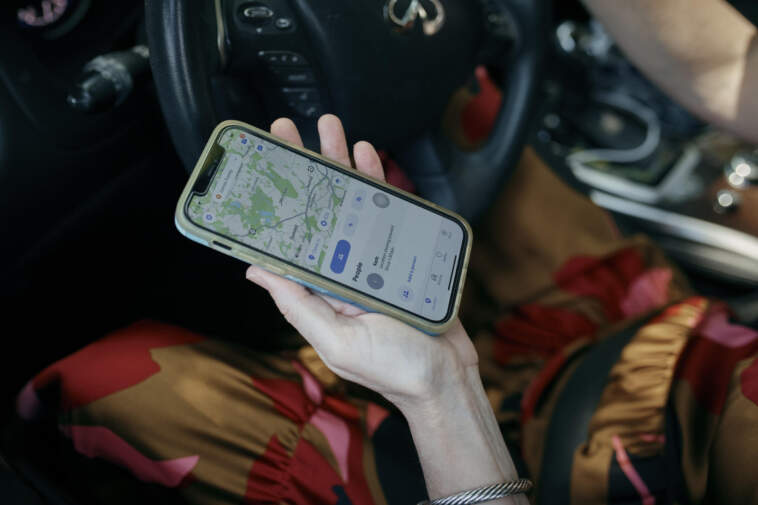(Yahoo) You know you have a credit score. Did you know that you might also have a driver score?
The score reflects the safety of your driving habits — how often you slam on the brakes, speed, look at your phone or drive late at night.
While you can see your credit score, you will have a harder time finding out what your driving score is. But auto insurance companies can get it — and that could affect the rate you pay.
For the past two decades, auto insurers have been trying to get people to enroll in programs, commonly called usage-based insurance plans, that monitor their day-to-day driving so rates better reflect the actual risk. But privacy-minded consumers have been reluctant to sign up.
So the industry has taken a different tack, getting data about how people drive from automakers or from apps that drivers already have on their phones. Experts say most people have no idea the insurance industry can track them this way.
After The New York Times revealed that General Motors was sharing driving behavior with LexisNexis, customers filed dozens of lawsuits and the carmaker ended its contract with the data broker. But data is still being collected from other automakers and it is still being collected from apps.
Driving behavior analysis, or telematics, as the insurance industry calls it, could be better for consumers, leading to personalized rates that are more fair. Plus, if people have to pay more for their risky driving, they may drive more cautiously, leading to safer roads. But this will happen only if drivers are aware that their behavior is being monitored.
According to the companies collecting and selling the data, consumers agree to share their information with the insurance industry. But the murky consent process means people may not realize what they are opting into.
“Most consumers are put off by the idea of an insurance company riding shotgun,” said Michael DeLong of the nonprofit Consumer Federation of America.
Smartphone Apps
The smartphone apps collecting driver data may not be obvious at first glance. One, Life360, is used by parents to keep track of their children. MyRadar offers weather forecasts. GasBuddy helps people save on fuel costs.
All of these apps also have opt-in driving analysis features that rely on sensor and motion data from the phone. You can turn on these features to get notifications if a family member crashes or suggestions for a more fuel-efficient route to work. Those features, though, are provided by an analytics company, Arity, which was founded by Allstate in 2016 and pays for access to the data. What is not made clear when people sign up for the features is that Arity also analyzes how risky their driving is for insurance purposes.
On GasBuddy, for instance, users can turn on a feature that rates the fuel efficiency of their drives, a feature “powered by Arity.” Brandon Logsdon, a spokesperson for the company, said that users “agree to Arity’s Privacy Statement before they opt in to the Drives function.”
But this agreement is in small gray font under a big red button labeled “Join Drives.” The tiny disclosure says simply that by clicking “Join Drives” you will share “certain information” with Arity and agree to Arity’s privacy statement, which is hyperlinked. The language does not explain what Arity is or does.
The company sells access to the driving scores of tens of millions of people. Auto insurance companies can “request a person’s individual driving score, which is delivered instantly,” according to Allstate’s website.
The scores “look at drivers’ performance behind the wheel, including how often they brake suddenly, speed or use their phones,” according to an Arity blog post aimed at insurance marketers, and can be used to target potential customers based on “10 different risk categories.”
Last month, Kathleen Lomax, a New Jersey mother who paid $100 annually for Life360 to track her husband and twin 18-year-old daughters, reached out to the company to ask if it was selling their driving data. An automated response, “crafted with the help of AI,” told her that Life360 did share driving behavior data with Arity.
“No one who realizes what they’re doing would consent,” said Lomax, who canceled her subscription.
A spokesperson for Life360 wrote in an email that “personally identifiable driving data” for Lomax and her family were never shared with an insurance company, that a Life360 member must consent and that Arity was required to “take steps with its partners” to identify Life360 as data source when it was used to generate insurance quotes. In a statement, GasBuddy said Arity provides users “who choose to opt in with personalized offerings and enhanced services.” MyRadar did not respond to requests for comment.
When a person shops around for auto insurance, the insurer needs to get consent to have access to the driving data collected by these apps, said Arity’s spokesperson, Stacy Silver. But how explicit is that request? A spokesperson for CSAA, a regional insurer for AAA members that uses Arity’s product in some states, said the consent to use smartphone data happened when it informed consumers that “we may collect third party data and reports.” That is standard language that insurers use to view a credit report, for example, and many consumers may click past it without reading closely.
Companies that create consumer reports are required by the Fair Credit Reporting Act to provide them upon request. Not all of the millions of people in Arity’s database can get their individual driving report, though; the company provides a report to a driver only if an insurance company has requested it as part of a quote.
Not all insurers are using Arity’s driving data. Spokespeople for GEICO and USAA said they collected driving behavior only from people who downloaded a dedicated smartphone app to track how they drove.
Allstate said it planned to “soon offer consumers the choice to get a personalized rate based on their driving history,” as collected by Arity.
A New Metric
Auto insurance pricing is complicated. A number of factors go into determining it, including credit history, gender, marital status, age, what car you drive and where you live, said Dale Porfilio of the Insurance Information Institute, a trade group.






